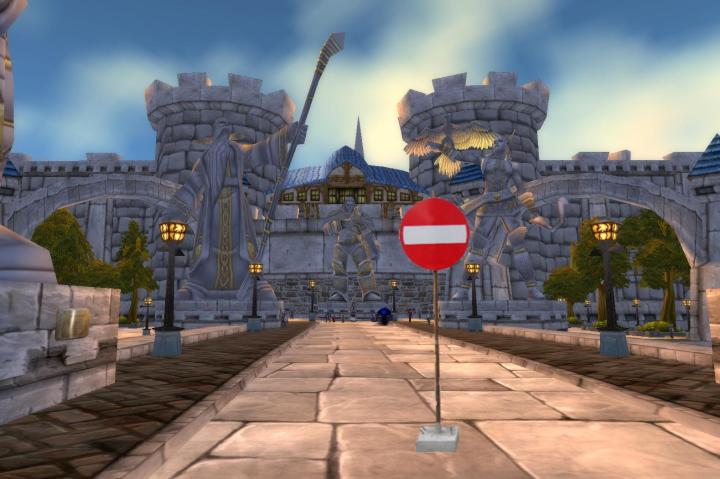
“In accordance with current trade regulations relating to the region of Crimea, we are legally required to suspend access to your Battle.net account,” read the company’s notice, sent to its Crimean users.
In December, 2014, the U.S. government levied sanctions against Crimea, barring American companies from investing in or providing services to companies in the region. Blizzard is the most recent in a growing list of major American Internet and tech companies to suspend services to Crimean users, following big players like Apple, Google, and PayPal.
In February several advocacy groups, including the Electronic Frontier Foundation and the Open Technology Institute, sent a letter to the U.S. Office of Foreign Assets Control expressing concerns that the sanctions, as written, would unnecessarily punish civilians in the region by restricting the free flow of information and isolating the population from the rest of the world.
“OFAC released three general licenses for the Crimea sanctions program, which authorized transactions related to personal remittances, mail, and telecommunications services,” the letter reads. “These general licenses follow a decades-old precedent that sanctions should not impede the free flow of information or contribute to the isolation of individuals living in embargoed countries.”
The licenses do not include, however, access to Internet-based services, software, and hardware, which have surpassed telephony and snail mail as the dominant communication channels for many people around the world. Similar sanctions in Cuba and Iran have already been expanded to include these allowances, “based on the recognition that information technologies offer unprecedented opportunities for independent media, person-to-person exchange, and documentation of human rights violations.”
Sanctions were imposed by the U.S. government following the annexation of the Crimean peninsula from the Ukraine by the Russian Federation in March 2014. Former Ukrainian president Viktor Yanukovych was ousted by popular uprising in February after signing a trade agreement with Russia instead of the EU. Fighting broke out between the interim Ukrainian government and Russia-backed separatists in Crimean peninsula. Despite protestation from Russian president Vladimir Putin that the Crimean independence referendum was in accordance with international law, the Ukraine, NATO, United Nations General Assembly, and many world leaders have condemned it as an illegal annexation, in direct violation of the 1994 Budapest Memorandum on Ukrainian sovereignty, which Russia signed.
The U.S. sanctions were instituted as part of an international effort to put economic pressure on Crimea and Russia, but have raised substantial questions about whether measures like this do more harm to innocent citizens than the governments they are intended to punish. The critical role played by social media in the events of the Arab Spring has underlined how crucial these online tools can be in empowering citizens living under oppressive regimes. In light of the recent American debate about Net Neutrality, it is increasingly apparent that the international community needs to establish clear standards about whether internet access is a luxury service, subject to the whims of capitalism, or a basic human right.
Editors' Recommendations
- Frost Giant wants Stormgate to be Elden Ring for RTS games
- World of Warcraft will finally unite the Alliance and Horde
- Blizzard Gear store leaks Overwatch 2 art, World of Warcraft expansion info


